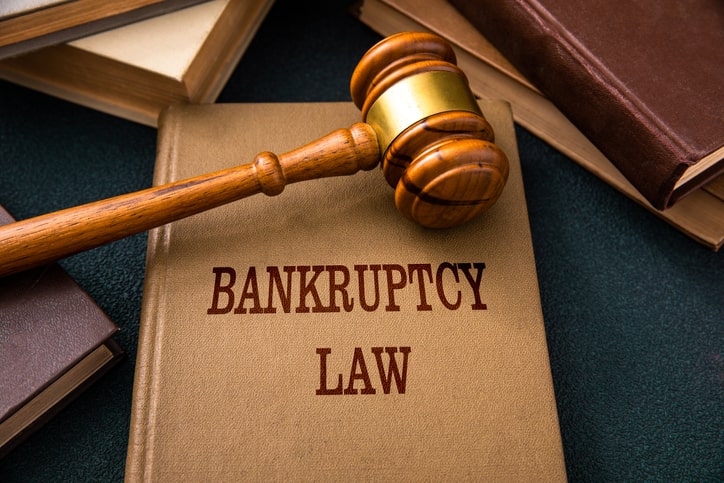Who is Able to File for Bankruptcy?
Bankruptcy is a legal process that provides individuals and businesses overwhelmed by financial challenges with a fresh start. However, not everyone qualifies for bankruptcy, and understanding the eligibility criteria is crucial before considering this option. In this guide, we will explore the key factors that determine who is able to file for bankruptcy.

Types of Bankruptcy
There are different types of bankruptcy, each designed to address specific financial situations. The two main types for individuals are Chapter 7 and Chapter 13.
- Chapter 7: Also known as liquidation bankruptcy, Chapter 7 is for individuals who have limited income and need to discharge most of their debts quickly. To qualify, you must pass the means test, which compares your income to the median income in your state.
- Chapter 13: This is an alternative that creates a repayment plan to offset debts over three to five years. It is suitable for individuals with a regular income who can make monthly payments. Eligibility depends on having sufficient disposable income to meet the repayment requirements.
Understanding Means Test
The Means Test is a crucial aspect of determining eligibility for Chapter 7 bankruptcy. It plays a significant role in assessing an individual’s ability to repay debts. This test involves a two-step evaluation of your financial situation, focusing on your income and expenses.
- Comparison to median income: The first step of the Means Test involves comparing your average monthly income to the median income in your state. This median income is determined based on household size. If your income falls below the median, you automatically qualify for Chapter 7. This recognition acknowledges that your financial situation may make it impractical to repay your debts through a Chapter 13 repayment plan.
- Disposable income calculation: If your income exceeds the median, the second step of the Means Test comes into play. This step involves deducting allowed expenses from your income to calculate your disposable income. These allowed expenses include standard amounts set by the Internal Revenue Service (IRS) for necessary living expenses (housing, utilities, transportation, and healthcare). The resulting disposable income is a key factor in determining whether you have sufficient financial resources to repay your debts. If your disposable income is too high, you may be required to file for Chapter 13 instead of Chapter 7.
It is important to note that the Means Test is a standardized process designed to prevent abuse of Chapter 7 bankruptcy by individuals with the means to repay their debts. While the test may seem complex, its primary purpose is to ensure that those who genuinely need a fresh start through Chapter 7 are able to access this form of relief.
Credit Counseling Requirement
You are required to undergo credit counseling from an approved agency before being allowed to file for bankruptcy. This counseling aims to assess your financial situation and explore alternatives to bankruptcy. Completion of a credit counseling course is mandatory for both Chapter 7 and Chapter 13 bankruptcy filers.
Chapter 13 Eligibility Criteria
For Chapter 13 bankruptcy, individuals must meet specific criteria:
- Regular income: You need a reliable source of income to create a feasible repayment plan.
- Debt limits: There are limits on the amount of secured and unsecured debts you can have to qualify for Chapter 13.
Disqualifications
Certain circumstances may disqualify individuals from filing for bankruptcy. These include:
- Previous bankruptcy discharge: If you have received a discharge in a recent bankruptcy case, you may be ineligible to file again for a specified period.
- Fraudulent behavior: Engaging in fraudulent activities like hiding assets or providing false information can lead to disqualification.
Business Bankruptcy
Businesses facing financial distress can file for bankruptcy under Chapter 7 or Chapter 11. Chapter 7 involves liquidating assets to pay creditors, while Chapter 11 allows businesses to reorganize and continue operating.
When Bankruptcy Might Not Be the Best Option
Bankruptcy is a powerful tool, but it may not be the best solution for everyone. In some cases, alternative debt relief options, such as debt consolidation or negotiation, might be more suitable. It is important to carefully evaluate your financial situation and consult with a qualified bankruptcy attorney in Tucson to determine the most appropriate course of action.
Let Us Help You Solve Your Bankruptcy Problem
At Eric Ollason, Attorney at Law in Arizona, we are dedicated to guiding you through the bankruptcy process and helping you make informed decisions about your financial future. If you find yourself facing overwhelming debt, reach out to us via (520) 791-2707 for expert advice tailored to your unique situation. Remember, understanding the rules is the first step toward a fresh financial start.





